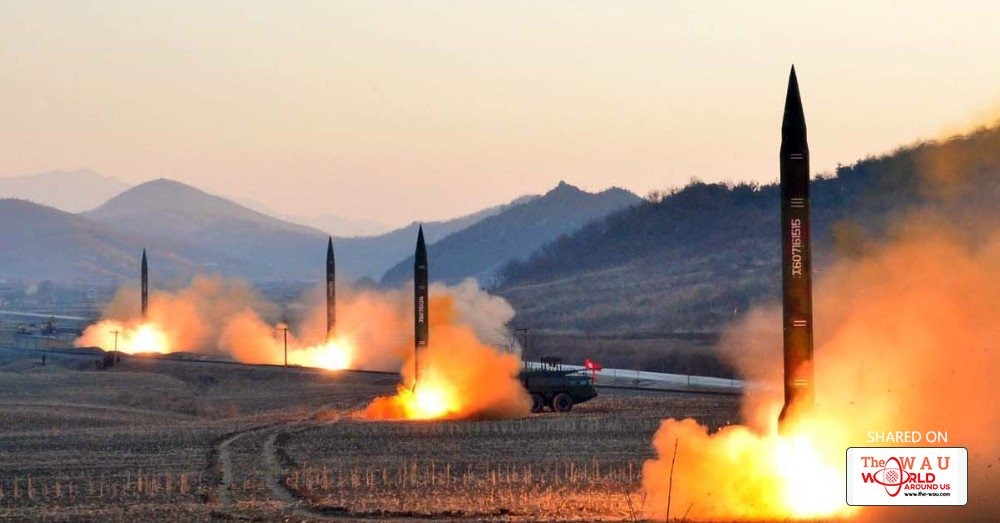When Rex Tillerson was sworn in as US Secretary of State, his boss said he would bring a "clear-eyed focus to foreign affairs."
He'll need it on his first trip to Asia, which begins Wednesday, as tensions flare in the volatile region.
North Korea's missile program is getting quicker and smarter, threatening the United States and its two key East Asian allies -- Japan and South Korea. The latter is reeling after the ouster of its president.
Tillerson will need to convince both that it's in their best interests to remain committed to the United States, and its controversial missile defense system.
However, his diplomatic skills will get their biggest test on the last leg of his trip when he becomes the first Trump Cabinet member to visit China and seeks to tap the country's perceived leverage over the North Korean regime.
Japan
Tillerson's most pressing issue in Japan -- like the region as a whole -- is the growing nuclear threat from North Korea.
The country's provocative leader Kim Jong Un test-fired a ballistic missile during Japanese Prime Minister Shinzo Abe's visit with US President Donald Trump in Florida, the timing of which led some analysts to believe it was a message for Tokyo.
And last week, when Kim launched four ballistic missiles simultaneously, North Korean state media implied the launch was practice for striking US military bases in Japan, where around 52,000 US service members are based.
Tillerson will meet with Abe and his counterpart Foreign Minister Fumio Kishida, with Japan seeking reassurance from the United States that it remains Washington's closest and most trusted ally in the Asia-Pacific.
Though Trump frayed nerves on the campaign trail by calling into question US alliances in the region, the new administration has mostly dialed back that rhetoric.

A statue of a girl symbolising Korean "comfort women" is unveiled during the unveiling ceremony in front of the Japanese consulate-general on December 31, 2016 in the South Korean city of Busan.
Tensions between Japan and the US' other big ally in the region, South Korea, could provide a challenge for Tillerson as he seeks to rein in North Korea.
The Japanese ambassador was recalled from Seoul in January over a controversial statue depicting the "comfort women" who were forced into sexual servitude by Japanese forces before and during World War II.
With deft, old-fashioned diplomacy, Tillerson has to find a way to encourage Japan and South Korea to resolve their issues so all three countries can focus on the growing threat Pyongyang poses to regional and global security.
South Korea
he main challenge for South Korean officials when Tillerson arrives is to convince him it's business as usual, when it's anything but.
Park Geun-hye has just been ousted from office, the country is bitterly divided and the government has been effectively paralyzed since the corruption scandal broke months ago.
But those holding the fort will work hard to get the assurances they want from the top US diplomat.
Tillerson will meet acting President Hwang Kyo-ahn for the first time and Foreign Minister Yun Byung-se, whom he met in February at the G20 foreign ministers' meeting in Bonn, Germany.
When US Defense Secretary James Mattis visited last month, he said what South Koreans wanted to hear -- that Washington promised an "overwhelming" response to any attack mounted by North Korea. Officials will be looking for statements along the same lines from Tillerson.
Tillerson also arrives at a time when Seoul claims Beijing is punishing it economically for agreeing to install THAAD, the US missile defense system that Washington says is needed to counter the North Korean missile threat.
With Park now out of the picture, he'll also be seeking assurances that South Korea's new leader honors the agreement. Snap elections will be held by the end of May.
The first elements of THAAD arrived in South Korea last week, the official line is it could be fully operational by July at the earliest.

China
Tillerson's first priority during scheduled meetings in Beijing Saturday will be to iron out the details of a tentative Florida summit scheduled in April between Trump and Chinese President Xi Jinping.
It would be the first meeting between the two men, in what many argue is the most important bilateral relationship in the world.
There is no shortage of items that should be discussed.
High on the list will be the ongoing crisis in North Korea. Since the beginning of 2016, two nuclear tests and dozens of ballistic missile tests have ratcheted up tensions on the peninsula. The Trump administration wants China to do more to curb the threat.
China will likely want to talk about the THAAD anti-missile defense system and Gray Eagle attack drones in South Korea. Beijing has expressed its strong disapproval of both, and Tillerson will likely leave China with that fact fully communicated.
Tillerson will also likely raise Beijing's build-up in the South China Sea. At his confirmation hearing, Tillerson suggested that Beijing should be denied access to the artificial islands it's built in the disputed waters.
Despite fiery rhetoric on the campaign trail, President Trump and his administration have taken a relatively hands off approach to China so far.
Trump has not followed through on campaign threats to label China a currency manipulator or impose steep tariffs on Chinese imports. He also endorsed the "One China" policy, which has governed relations between the US, China and Taiwan for decades, after questioning its legitimacy shortly after his election.
The Secretary of State's visit to China has the potential to set the tone for the upcoming Xi-Trump meeting.
It could be the opening salvo in the Trump's administration's previous promises to "get tough" on China, or it could be a continuation of the relatively calm period we've seen since inauguration day.
Share This Post















